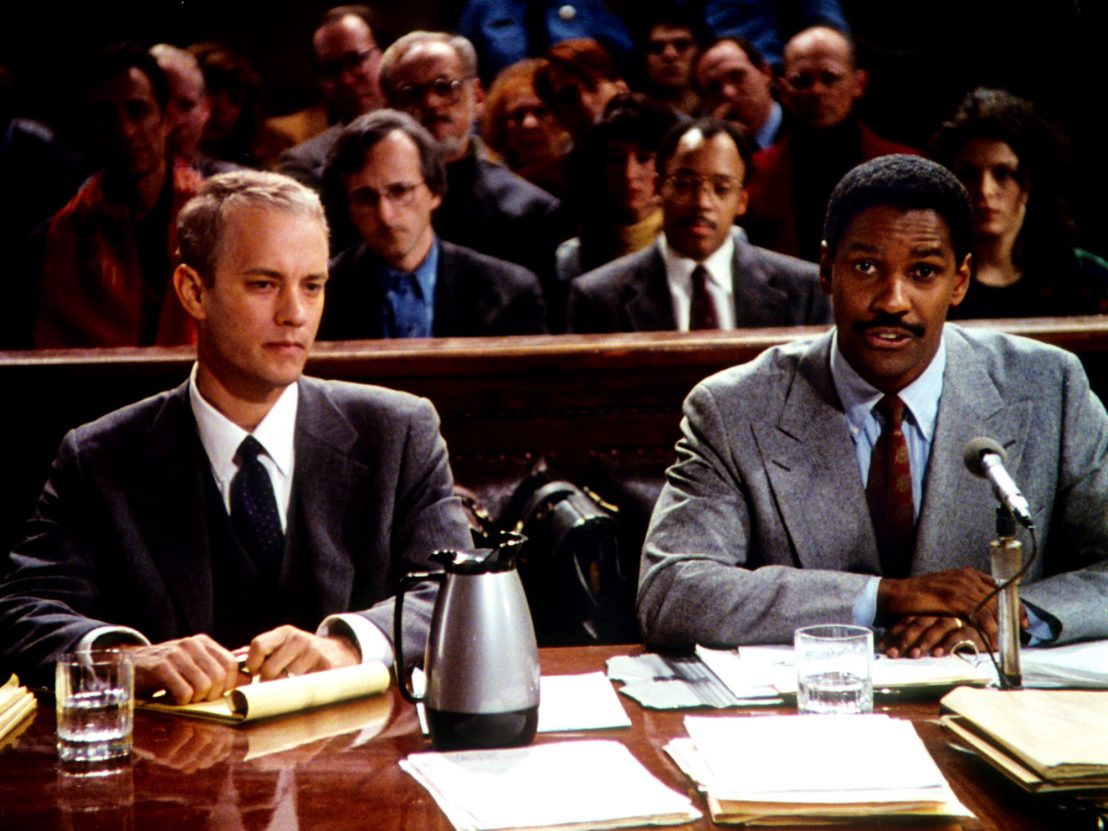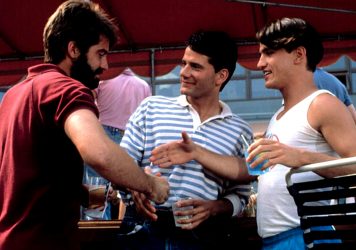
“Explain it to me like I’m a six-year-old,” Denzel Washington’s low-class lawyer, Joe Miller, says, repeatedly and memorably, throughout Philadelphia. Well, okay. For as long as the movies have existed, so has homophobia.
Ever since “sissy” gay men and “macho” lesbians became sordid staples during cinema’s silent era, outright homophobia has been an all-too common sight on our screens. Meanwhile, there are controversial films like William Friedkin’s Cruising, which is less homophobic upon reflection; and others like The Danish Girl, greeted with acclaim by the Academy, but now regarded as decidedly homophobic (not to mention transphobic).
Then there’s Philadelphia. Jonathan Demme’s 1993 AIDS drama – the first studio film to tackle the epidemic sensitively – was never going to be a new pinnacle for queer cinema. Boasting a straight director, producers and lead actors (screenwriter Ron Nyswaner is gay), it’s hard to even call Philadelphia a ‘gay film’. Same-sex intimacy is scant. Miller’s free use of the F-word is dismissed with eyerolls rather than indignation. Playwright-activist Larry Kramer said he “hated” the film, presumably because he felt treating a mainstream American audience like six-year-olds was letting them off the hook.
All of this is true, and because of that, Philadelphia will never be described as the definitive AIDS drama. (Angels in America wears that crown well.) Then again, Demme never intended it to be. Instead, Philadelphia strains for a simpler kind of moral clarity, with loyal and well-meaning characters pitted against cynical and ignorant ones. The film also plays out as the initial outline suggests: Andrew Beckett (Tom Hanks) finds an unlikely ally in homophobic lawyer Joe Miller (Washington) after contracting HIV and being wrongfully dismissed from his employer. A courtroom battle ensues while Beckett suffers under debilitating symptoms.
Greeted as Hollywood’s first serious engagement with the AIDS crisis, Philadelphia carried the impossible burden of mourning the more than 100,000 Americans who had lost their lives to the disease up to that point. Demme hoped for his audience to mourn just one. Hanks put it well in the 2003 featurette People Like Us: The Making of Philadelphia: “I think the movie was made for people who thought they didn’t know anyone who died of AIDS. And after the movie, they knew someone who died of AIDS.”
“Demme reminds us that the AIDS epidemic is taking place on the street corners of American cities, woven into everyday scenes.”
Who better than Demme to forge an emotional connection between a naïve audience and a desperate (and desperately angry) community? Philadelphia is just one example; the emotional intelligence of the director’s films and music video work never fails to shine through. His signature use of close-up, which pulls the audience in toward the characters, is weaponised here. When Hanks or Washington or one of the courtroom witnesses stares down the barrel of the camera, we can’t help but be reeled in.
It’s hardly subtle, but it doesn’t matter. Little in Philadelphia is. Opting for that very setting, rather than New York City or San Francisco, which are more commonly associated with America’s gay community, is a statement in itself. A post-industrial heartland with a now-clichéd ruggedness, the so-called “City of Brotherly Love” is more immediately relatable to heterosexual America. Tradition abounds, whether in the form of the Declaration of Independence or Rocky.
Demme further insured the film against accusations of liberal elitism by asking Neil Young and Bruce Springsteen, both paragons of straight culture, for a bouncy rock anthem to open the film and reassure a reluctant audience. Both sent back eerie ballads which touched on the suffering and injustices faced by AIDS victims nationwide. Demme said: “Maybe they have more faith in my movie than I do.”
Springsteen’s ‘Streets of Philadelphia’ was slotted in next to the opening credits, interrupted by sounds of the city and shots of local playgrounds, butchers and barbers. Once again, Demme reminds us that the AIDS epidemic is taking place on the street corners of American cities, woven into everyday scenes. Indeed, the film’s original title was People Like Us, a likely reference to a song by Talking Heads, for whom Demme had directed the concert film Stop Making Sense.
Upon release, Philadelphia grossed a handy $77.5m in the US and $124m overseas –almost 10 times its budget. But critics, particularly gay writers, weren’t convinced of its aesthetic value. People and Personals reported the film “gently prods the nation’s consciousness,” a well-intentioned compliment and a withering insult. LA Times reviewer Kenneth Turan wrote Philadelphia “overdoes things” and has an “air of do-goodism”.
Understatement was never Demme’s style. The famous opera scene, in which Hanks wails and Washington aches and lightning and thunder seem to fill Beckett’s apartment, was screenwriter Nyswaner’s own embrace of a certain gay stereotype. It’s time we re-embraced this flawed, formulaic masterpiece of socially-conscious cinema, too.
Philadelphia is screening at select Odeon cinemas across the UK on 2 March.
Join our community of film lovers and receive monthly film recommendations, exclusive essays and more
Become a memberPublished 2 Mar 2022

By Jack King
Norman René’s compassionate opus remains the only theatrically released film to accurately reflect the epidemic’s impact.

Jonathan Demme’s 1991 masterpiece evokes fear by putting us in the protagonist’s shoes.

By Max Ramsay
The pioneering British filmmaker’s final work remains a profoundly personal and poetic work.